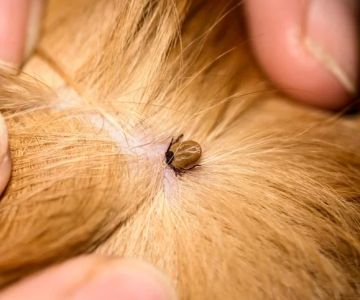How to Prevent Kidney Disease in Dogs: Essential Tips for Maintaining Kidney Health
- Understanding Kidney Disease in Dogs
- The Importance of Hydration for Dog Kidney Health
- A Balanced Diet to Prevent Kidney Disease in Dogs
- The Role of Regular Veterinary Checkups in Kidney Health
- Real-Life Case Study: Preventing Kidney Disease in Dogs
Understanding Kidney Disease in Dogs
Kidney disease in dogs is a serious health concern, especially in older dogs. It is one of the most common chronic conditions affecting dogs, leading to kidney failure if left untreated. Kidney disease can be caused by various factors, such as genetics, infections, toxins, and aging. The kidneys play a vital role in filtering toxins and waste products from your dog’s blood, so maintaining kidney health is essential for overall well-being.
Kidney disease in dogs often develops slowly, and symptoms may not be noticeable in the early stages. Common signs of kidney disease include increased thirst, frequent urination, loss of appetite, and weight loss. It’s important to catch these symptoms early to prevent further complications.
The Importance of Hydration for Dog Kidney Health
Hydration is one of the most crucial aspects of maintaining kidney health in dogs. Dehydration can significantly impact kidney function, especially in dogs with pre-existing kidney issues. Ensuring your dog has access to fresh, clean water at all times is essential for keeping their kidneys working properly.
If your dog is not drinking enough water, it may be a sign of underlying health problems, including kidney disease. In some cases, dogs with kidney issues may drink excessively or urinate more often. Monitoring their water intake and output can provide important clues about their kidney health.
To encourage your dog to drink more water, try offering water in different bowls or using a pet water fountain. You can also add water or low-sodium broth to your dog’s food to increase their fluid intake.
A Balanced Diet to Prevent Kidney Disease in Dogs
A balanced diet is vital for preventing kidney disease in dogs. Certain nutrients, such as protein and phosphorus, can affect kidney function. Feeding your dog a high-quality, well-balanced diet tailored to their specific needs is essential for maintaining kidney health. For dogs at risk of kidney disease, consider foods that are lower in phosphorus and protein to reduce strain on the kidneys.
Many veterinary professionals recommend feeding dogs with kidney disease or those at risk of kidney issues specialized diets designed to support kidney function. These diets typically include lower levels of protein, sodium, and phosphorus, while providing higher levels of omega-3 fatty acids, which help reduce inflammation.
It's also important to feed your dog in appropriate portion sizes to avoid obesity, which can contribute to kidney problems. Your veterinarian can provide guidance on the best diet for your dog based on their age, breed, and overall health.
The Role of Regular Veterinary Checkups in Kidney Health
Regular veterinary checkups are essential for detecting kidney disease early and preventing its progression. Routine blood tests and urine tests can help identify changes in kidney function before symptoms become noticeable. Early detection allows for prompt treatment and can slow the progression of kidney disease, improving your dog’s quality of life.
During veterinary visits, your veterinarian will monitor your dog’s kidney health, check for signs of dehydration, and assess their overall condition. Regular checkups also give you the opportunity to discuss any concerns you may have about your dog’s diet, hydration, and general well-being.
It’s recommended that older dogs undergo routine kidney function testing at least once a year to catch any issues early and prevent further damage to their kidneys.
Real-Life Case Study: Preventing Kidney Disease in Dogs
Meet Bella, a 9-year-old Labrador Retriever. Bella’s owner, Sarah, noticed that she had been drinking more water than usual and frequently needed to go outside to urinate. Sarah took Bella to the veterinarian for a checkup, where blood and urine tests revealed early signs of kidney disease.
Thanks to Sarah’s quick response and the veterinarian’s recommendations, Bella was placed on a special kidney-friendly diet, had her hydration monitored closely, and started regular checkups every six months. With these changes, Bella’s condition stabilized, and she continued to live a healthy, active life for several more years.
This case demonstrates the importance of early detection, a proper diet, and regular veterinary care in preventing kidney disease from advancing to a more severe stage. Preventative measures, like those taken by Sarah, can make a significant difference in your dog’s health and quality of life.









